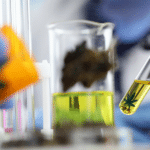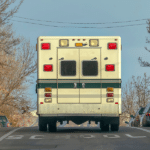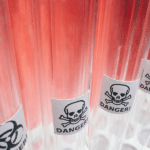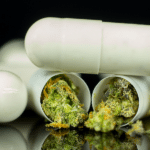Very high doses of CBD (2-3 grams) might interact with tacrolimus, an immunosuppressive drug used in organ transplant patients.
With CBD becoming more mainstream, doctors are on the lookout for how this powerful chemical affects human health. But a typical adult in the U.S. takes at least one pharmaceutical, and CBD’s interaction with other medications can be significant, especially given how easily one can overdose on common drugs. A new potential interaction has been highlighted by scientists at the University of Cincinnati, in Ohio. They report a woman using an extremely high dose of pure CBD for epilepsy — between 2-3 grams per day. She was also taking tacrolimus, a common immunosuppressive drug, to treat a kidney disorder. When combining these two treatments, tacrolimus levels in the blood rose three-fold — a dangerous result. Because the addition of CBD helped control the seizures, her doctors helped her adjust the dose of these two drugs. This is commonly what happens with drug-drug interactions — there is an important need to monitor drug levels, but the interaction can be managed without ill effects for many patients.
Tacrolimus is a mainstay medication for organ transplant, so this possible interaction could be important for patients who need an organ transplant. Moreover, there has been some research on the potential to use CBD in transplant patients. Both THC and CBD tend to tone down immune activity, and they have recently been suggested for treating graft-versus-host disease, a potentially deadly reaction to organ transplants.
How relevant is a cannabinoid-drug interaction like this to the average person? It depends greatly on the dose of CBD. In this case, there are probably two proteins that CBD interferes with to increase drug exposure — it inhibits CYP3A4, an enzyme that breaks down more than half of all pharmaceuticals, and it can inhibit P-gp, a protein which pumps chemicals out of certain cells. But this woman was using multiple grams of CBD per day. If she got this from good quality cannabis flower (say, a flower that’s 20% CBD by weight), she would have to eat half an ounce each day. That’s not the normal dose that people take, even those using cannabis for epilepsy. When unpurified cannabis extracts are used, the common doses are 10-100 times lower. THC and other plant compounds appear responsible for this greater potency, and the consequent lesser risk of drug-drug interactions. In other words, THC seems to make CBD a safer more effective medicine.
Read study: Evidence of a clinically significant drug-drug interaction between cannabidiol and tacrolimus
Adrian Devitt-Lee is a research scientist and longtime Project CBD contributor. © Copyright, Project CBD. May not be reprinted without permission.







